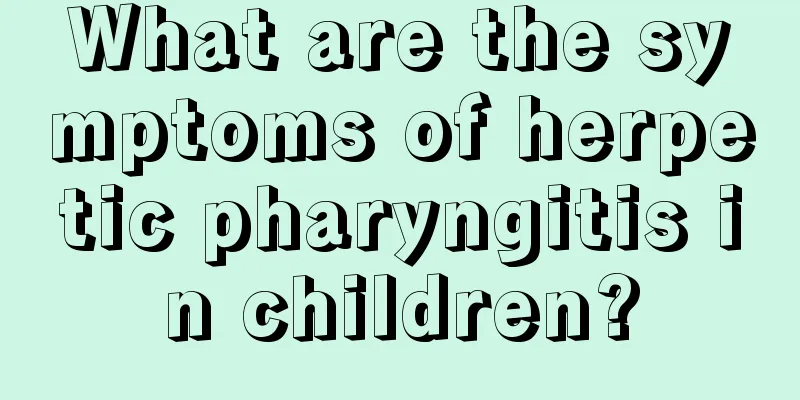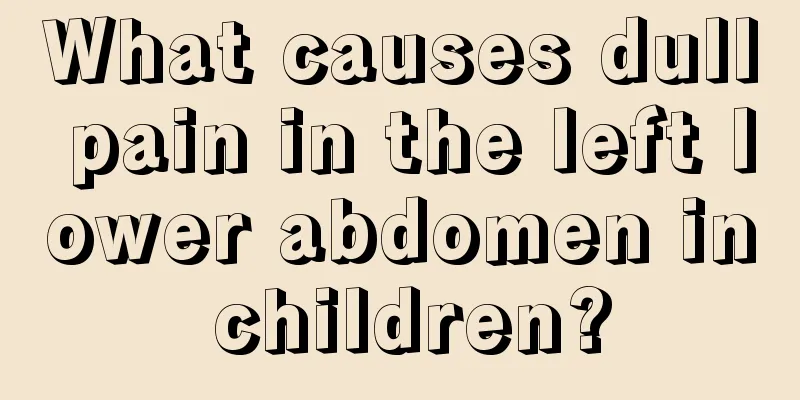What causes low body temperature in newborns?

|
Children are the fruit of love and the continuation of life. Every parent will be particularly happy about the arrival of a new life. From the moment this child was born, he began to touch every nerve of his parents. When he was well, his parents were happy, and when he was sick and in pain, his parents were worried. Some newborns have a body temperature lower than normal, which makes their parents very worried. What causes the low body temperature of newborns? Newborns have a relatively large body surface area, thin subcutaneous fat, and many blood vessels, which makes it easy for them to dissipate heat and have poor thermal insulation ability. The body temperature regulation center is not fully developed and the ability to regulate body temperature is poor. Newborns have underdeveloped muscles, little activity, and poor heat production ability. Hypothermia is likely to occur when the ambient temperature drops, warming measures are insufficient, or calorie intake is insufficient. Hypothermia can not only cause skin swelling, but also damage the tissues of important organs in the body, affect their functions, and even lead to death in severe cases. Causes 1. Immature development of the body temperature regulation center When the ambient temperature drops and warmth is insufficient, the body consumes too little calories and cannot regulate its own heat production, resulting in hypothermia. 2. Affected by cold Newborns have a relatively large body surface area, and their heat dissipation is greater than their heat production. When the ambient temperature drops in winter and spring, they are not effectively kept warm and are most likely to develop hypothermia. 3. Insufficient food intake The amount of glycogen stored in the liver of a newborn is very small. If the calorie intake is insufficient, it will be exhausted within 18 to 24 hours after birth. If heat production is too low, hypothermia may easily occur when the ambient temperature drops. 4. Premature and low birth weight babies The baby has less energy reserves, consumes less calories, and has a poorer ability to regulate body temperature. The younger the gestational age and the lower the birth weight, the greater the risk of hypothermia. 5. Disease impact When newborns suffer from infectious diseases such as sepsis, pneumonia, and purulent meningitis, they eat less and have insufficient calorie intake. Shock, acidosis, and microcirculation disorders affect the decomposition of brown fat, which reduces heat production in the body. At this time, if the ambient temperature is low and the baby is not kept warm enough, hypothermia can easily occur. When newborns are suffering from hypoxia and nervous system dysfunction, brown fat cannot be utilized and their body temperature may not rise. Clinical manifestations When a newborn has hypothermia, the skin temperature often drops below 35°C due to contraction of peripheral blood vessels. The first symptoms are cold body, poor reaction, drowsiness, refusal to feed, less crying and less movement. Some children may develop hard swelling of the skin, starting from the limbs, thighs, and buttocks, and in severe cases spreading throughout the body. Tachycardia may occur in the early stages, and in severe cases, multiple organ damage may occur: slowed breathing, respiratory arrest, even pulmonary hemorrhage, low blood pressure, and even death. The nervous system shows coma, pupil dilation, and loss of response to the external environment. Newborns are particularly fragile, have poor resistance and are prone to illness. So parents must take good care of their babies and not let them get sick. The low body temperature of a newborn is a very serious problem. Parents should be careful. This is not a trivial matter. It concerns the child's physical health. Parents must pay attention. When this happens to a child, they must take the child to a regular children's hospital for examination. |
<<: What are the dangers of antibiotics to babies?
>>: What is the weight gain pattern of infants and young children?
Recommend
How to quickly reduce fever for eight-month-old baby
Before a child is one year old, their body resist...
Treatment of diarrhea in infants under one month old
I believe we have all seen cases of diarrhea in b...
What to do if a 2 and a half year old child has a fever
During the growth process of babies, due to their...
What is the treatment method for foreign matter in baby's eyes?
Foreign objects in the eyes can cause great harm ...
What should I do to relieve the red bloodshot eyes?
Some mothers may find that their babies suddenly ...
Severe mental retardation
The key to curing mental retardation in children ...
What medicine should children take for frequent urination
Nowadays, many parents find that their children a...
White spots appear on newborn's skin?
If white spots appear on the baby's body, par...
What is going on with baby's hair loss?
Parents who raise their babies will definitely en...
What causes children to have frequent low-grade fever?
Children's bodies are very fragile, so their ...
What to do if you have a low fever due to hand, foot and mouth disease?
Hand, foot and mouth disease is relatively common...
What to do if there are worm spots on the baby's face
Worm spots are medically known as pityriasis alba...
What to do if a child is bitten by a dog
There is a theory that should be adhered to when ...
White sediment in children's urine
If there is white sediment in the child's uri...
What should I do if my child has nosebleeds due to rhinitis? Emergency measures to keep in mind
Children with rhinitis are prone to nosebleeds, w...









